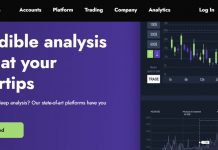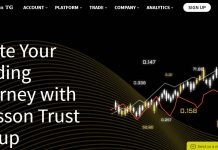Brexit talks resume with EU set to play tough
 There is barely a day goes by right now that there isn’t a new negative for the British economy, its desire to leave the EU, or the political landscape.
There is barely a day goes by right now that there isn’t a new negative for the British economy, its desire to leave the EU, or the political landscape.
Recently there have been political scandals in Parliament which, although not limited to the Government, have had the greatest effect on Theresa May’s Cabinet with one high profile casualty. Defense Minister Michael Fallon has been replaced by a remain supporter in a move by the Prime Minister to bolster support “soft Brexit” approach. As that issue dies down another minister has been uncovered having private, unauthorised meetings with the Israeli Government while supposedly on holiday. Priti Patel, the Overseas Development Minister has resigned undermining the Prime Minister even further.
Brexit talks resume today against the backdrop of a political shambles in the U.K. and the EU negotiating team appear to have been given the green light to get tough over the demands that have been made before the talks can move onto stage two. France and Germany insist that the financial issue, at least, is agreed, and substantial progress is made on the other two matters; the Irish Border and the treatment of EU citizens remaining in the U.K. after Brexit before stage two can be started. The optimism that followed the EU Heads of Government meeting recently has now evaporated.
Dollar continues to be supported by prospect of higher rates
 Monetary policy now appears to be the primary driver of currency strength or otherwise as traders have been awoken to the return of “cost of carry”. Investors are seeing the benefit of holding higher yielding currencies which add to the return on their investments. The Dow made another new high this week. As rates increase in 2018, it is likely that asset prices will start to correct.
Monetary policy now appears to be the primary driver of currency strength or otherwise as traders have been awoken to the return of “cost of carry”. Investors are seeing the benefit of holding higher yielding currencies which add to the return on their investments. The Dow made another new high this week. As rates increase in 2018, it is likely that asset prices will start to correct.
Macroeconomic data is also supporting the greenback although inflation continues to be an issue as does wages growth. Next week sees the release of inflation data in the U.S. with headline year on year price increases expected to have reached 1.7%, still below the Fed. target of 2%. With the Fed looking to reduce the size of its balance sheet the withdrawal of liquidity will also be a tightening measure which will probably reduce inflation further.
As investors start to plan strategy for 2018, the prospect of varying rates of growth and monetary tightening within G7 will be a primary driver of investment decisions. The ECB and BoE have already signalled “lower for longer” policies with the U.S. and Canada hiking rates with more to come in the new year.
Error, group does not exist! Check your syntax! (ID: 4)
Euro drifting without new factors
 As Brexit talks resume and the Eurozone comes to terms with the ECB’s determination to keep monetary policy accommodative for as long as possible there are very few factors that will drive direction of the common currency.
As Brexit talks resume and the Eurozone comes to terms with the ECB’s determination to keep monetary policy accommodative for as long as possible there are very few factors that will drive direction of the common currency.
It is therefore adrift, with other currencies determining its direction. This week the Euro made a new three-month low versus the dollar and Sterling continues to fall as concerns over Brexit take a toll.
So far Brexit concerns have been limited to the effect on the U.K. In 2016 after Germany and France, the U.K. was the third largest contributor to the EU Budget, accounting for almost 14%. This sum will have to be distributed between the remaining 27 states and how that will happen could lead to serious arguments. There has, so far, been no discussion about whether it will be equally distributed which will clearly favour the wealthier nations or spread according to existing contributions which will see the lesser contributors suffer an increase in their subscription.
After the U.K. the next two largest contributors are Italy and Spain and given the issues Spain is facing together with the political upheaval of an election in Italy the new year could see a change in focus away from monetary policy as a major driver for the euro.








![Reltex Group Reviews: Explore business opportunities by Trading [reltexg.com]](https://comparic.com/wp-content/uploads/2023/12/image001-218x150.jpg)
![Mayrsson TG Reviews: Why Choose Crypto-Trading with Them? [mayrssontg.com]](https://comparic.com/wp-content/uploads/2023/12/image1-218x150.jpg)








